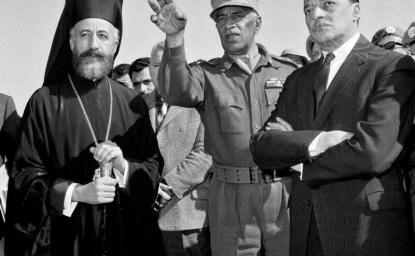Lublin, Poland: 20-21 November 2008
The 20th Century, plagued by two world wars, witnessing the rivalry between the world of democracy and the world of totalitarianism, also brought the biggest migrations in modern history. Movements dictated by political reasons were an important part of those migrations. Political migrations affected especially East-Central Europe from where, firstly as a result of the Second World War, about 30 million people emigrated, and later most of them permanently stayed outside their home countries. Next waves of emigrants like those after 1956, 1968 and 1980–81 joined them before the iron curtain fell. On the other hand many emigrants did not withstand the hardships of exile and made decisions to return. Political émigrés became an important factor exploited by both sides of the Cold War conflict.
The opening of secret archives of communist security services in 1990s brought about a breakthrough in the research on the history of East-Central European political émigrés. Thus the activities of communist security services directed against political émigrés will be the central topic of an international conference organised by the Institute of National Remembrance in Lublin, Poland from 20th to 21st November 2008. The conference will be structured in 4 parts – we envisage 21 papers and a panel discussion. The conference will proceed in English and Polish with consecutive interpretation.
1.Soviet patterns and directives from Moscow – operations against Russian émigrés in the West or involving them (before, during and after the Second World War) – 3 papers.
2.State and security apparatus structures involved in actions against émigrés from Soviet republics (Baltic States, Belarus, Ukraine) and Eastern Europe (Poland, East Germany, Czechoslovakia, Hungary, Yugoslavia, Romania, Bulgaria): an overview – 9 papers.
3.Case studies on communist countries' actions against political émigrés in the West, émigré institutions and organisations (governments and other political representations in exile; centres of émigré civic and cultural life; Christian Democrat, Socialist, Agrarian and Liberal Internationals; Polish, Czechoslovak, Hungarian, etc. Radio Free Europe Desks), as well as on special operations against selected individuals – 9 papers.
4.Western intelligence and counter-intelligence vis-à-vis East-Central European émigrés – a panel discussion.
All those interested in attending the conference are invited – either as speakers, discussants or members of the audience. The conference organizers will provide the accommodation and board to authors of presentations free of charge as well as will reimburse them their travel expenses (up to the amount of 600 Euro in the case of speakers from European countries and up to the amount of 1200 Euro in the case of others). Other conference participants will have hotel rooms at the conference venue booked (the number of rooms is limited).
For more information, or to receive a conference registration form, please contact Dr Slawomir Lukasiewicz at:
slawomir.lukasiewicz@ipn.gov.pl
or
Dr Slawomir Lukasiewicz
Institute of National Remembrance – Lublin Branch
Public Education Section
ul. Szewska 2
20-086 Lublin
fax: +48.81.53.63.462
Additional information:
http://www.ipn.gov.pl

Cold War International History Project
The Cold War International History Project supports the full and prompt release of historical materials by governments on all sides of the Cold War. Read more




